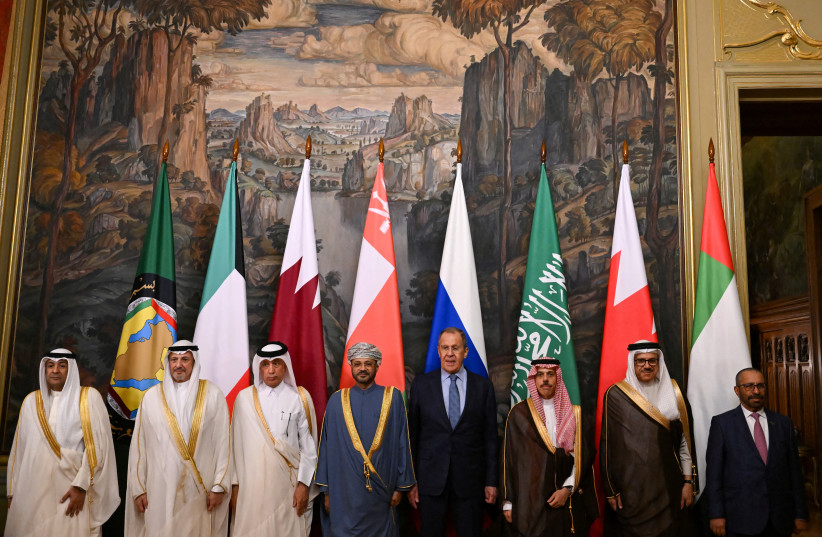The Gulf states are hosting Central Asian countries this week in Saudi Arabia. This is an important move for the Gulf and the five countries that make up Central Asia; Uzbekistan, Turkmenistan, Kazakhstan, Tajikistan and Kyrgyzstan.
With the US withdrawal from Afghanistan and Russia’s war in Ukraine, these countries may feel a bit isolated and also hemmed in by China and Russia. The Gulf is a natural partner.
Saudi Arabia Crown Prince Mohammed bin Salman said on Wednesday, that he hoped the event would be a “promising start based on what we possess in historic legacy, human resources, capabilities and economic growth”.
According to media in Saudi Arabia, the leaders of the five Central Asian countries convened in Jeddah. “In a joint statement at the end of the summit, the leaders of the two blocs stressed the importance of strengthening political and strategic relations at the collective and bilateral levels, and continuing coordination in order to achieve regional and international security and stability, confront challenges and work to ensure flexibility” in fields ranging from supply chains to food security.”
There is now a joint action plan for these states and the GCC that looks to continuing ties through 2027. During this period they will increase trade and also work on issues such as promoting tolerance and also discuss energy and climate, in relation to meetings such as COP28.

The theme of the meeting
The overall theme of this meeting was general support for things like strategic ties, security, countering terrorism and “international peace.” Not much can be gleaned from that in terms of specific changes, but the overall trend is clear. The countries will meet again in Samarkand in Uzbekistan in 2025.
The meeting is part of a number of important diplomatic moves in the region.
Turkey’s president was also in Saudi Arabia and the UAE recently. The overall sense in the Gulf is that the countries are making major inroads abroad in terms of real influence that is different than in the past.
These are regional relationships. This is not one where the Gulf is a junior partner, as some western countries saw the Gulf. This is about equal partnerships.
An article at The National in the UAE noted that “this week, the UAE hosted three, by the leaders of India, Japan and Turkey in that order.
Indian Prime Minister Narendra Modi’s visit on Saturday was short but sweet; he spent just a day in Abu Dhabi, but used the time to oversee the signing of agreements to ease UAE-India cross-border transactions.”
The article sees the UAE as part of the “Asian century.” This is in contrast to western reports that see Saudi Arabia and the UAE at odds and try to portray these countries as facing numerous hurdles. While the countries in question may have issues between each other, the overall sense of these visits with the GCC and Turkey, is how united the region is.
